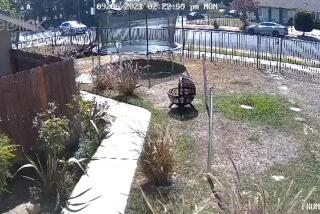Firm’s extended vehicle warranty offer breaks down under scrutiny

It was the sort of letter designed to get attention. “Final attempt to notify,” it said on the outside.
Within, an official-looking “product warranty expiration notice” said that my Toyota’s service contract “is expiring or has expired.” It provided a number to call “to extend coverage.”
This was troubling because when I purchased my “certified pre-owned” car from a dealer in 2011, I paid $1,700 for a seven-year, 100,000-mile extended warranty. Now it was expiring?
The answer, of course, was no. And the racket I’m about to run down is yet another reminder that you need to examine closely anything that even remotely looks like a financial warning. Chances are, it’s a sales pitch for something you don’t want and don’t need.
Most homeowners have received things like this in the mail relating to their home. Maybe it’s called mortgage protection. Maybe it’s extended coverage for your gas line or chimney.
This was the first time I’ve seen one relating to a vehicle. And the format of the letter was particularly insidious, making it seem to be from my dealer and indicating that if I didn’t act right away, I could be on the hook for any breakdowns.
My first call was to the Toyota dealer that sold me the car. Tony Laferrara, who works in the finance department, assured me that my extended warranty was still intact. I told him about the letter I’d received.
“That’s the fourth or fifth one of these we’ve heard about,” Laferrara said. “They’re contacting people whose original factory warranty may be up.”
He didn’t know how the marketer was obtaining information about people’s vehicles. Undoubtedly there’s some database operator somewhere turning a buck by selling files to these jokers.
So I called the number in the letter and asked for someone in the head office. I was told no one in the head office was available to the public. Instead I was connected with Dave, who identified himself as a sales rep for American Automotive Service Solutions in O’Fallon, Ill.
“We work on a direct payment system with Toyota,” he explained. I have no idea what that means.
Dave didn’t know about the extended warranty I’d already purchased from the dealer. As far as he was concerned, the three-year factory warranty on my 2009 car had run its course, so I was now naked to the world, coverage-wise. Luckily, he had the solution.
If I qualified for his company’s “elite product warranty,” I could save myself a lot of heartache should anything go awry with my engine, transmission, steering system, cooling system, electrical system or other important systems.
And what do you know? After answering a few questions about the upkeep of my car, I learned that I did indeed qualify for the elite product warranty.
Dave’s supervisor, Nathan, then came on the line to say that I’d better act fast. He said if I didn’t agree to the coverage by the end of the call, my eligibility for the elite plan would disappear and I’d have to pay almost $800 more if I changed my mind later.
“We can’t take the chance of you calling back only after you start having problems,” Nathan said.
Then Dave returned and said I would receive a four-year, 80,000-mile warranty for just $3,625 — or about twice the cost of my more comprehensive Toyota warranty. He encouraged me to do what most customers did: Pay $395 upfront from my credit card and then make 12 monthly payments of $269.17 each.
I asked to see a copy of the contract. Dave said I would receive it by FedEx after we had come to terms. I dug in my heels and said that I couldn’t agree to a new warranty without seeing the contract. So Dave reluctantly emailed me a copy.
I thanked him for his time and hung up.
The six-page contract revealed that the warranty centered on an oil additive called Protector 5/100. You have to put it in your engine once a year for the four years of coverage.
The contract lays out the various systems and components that are covered, and at first glance, it’s a pretty thorough list. But if you keep reading, you’ll reach a section on “exclusions” on the third page. That’s where you’ll find this little stink bomb:
“Failures must be the result of a proven mechanical failure resulting from failure of the Protector 5/100 product.”
I’m no lawyer, but that seems to be saying that if you can’t prove your engine or transmission went kerblooey as a result of the Protector 5/100 oil additive not doing its job, you’re not covered. And God knows how you’d prove that a major mechanical breakdown is the direct fault of an oil additive.
I called American Automotive back and related my concern. I was connected with Clayton, who said he was a manager at the warranty company.
He explained that a quirk of California law prevents companies like American Automotive from offering true extended vehicle warranties. Instead, he said, they could only offer a product warranty that comes with lots of extra coverage.
For this reason, Clayton said, the warranty from American Automotive seems to be about the oil additive, but it’s actually coverage for a vehicle’s various systems.
California law requires that any seller of an extended service contract be a licensed dealer. According to the Department of Insurance’s website, any unlicensed company selling vehicle service contracts from out of state is breaking the law and can be charged with a felony.
Lynda Gledhill, a spokeswoman for Atty. Gen. Kamala D. Harris, declined to comment on the matter.
Legal issues aside, I pointed out to Clayton that his company’s contract seems to let it off the hook for any mechanical problem that’s unrelated to a “failure of the Protector 5/100 product.” I asked him to show me any language that mitigates this sweeping loophole.
He couldn’t. All he could do was reiterate that the coverage was comprehensive, regardless of what it may say in the contract.
It’s like Chico Marx said: “Who are you gonna believe, me or your own eyes?”
The conversation ended there.
David Lazarus’ column runs Tuesdays and Fridays. He also can be seen daily on KTLA-TV Channel 5 and followed on Twitter @Davidlaz. Send your tips or feedback to david.lazarus@latimes.com.







